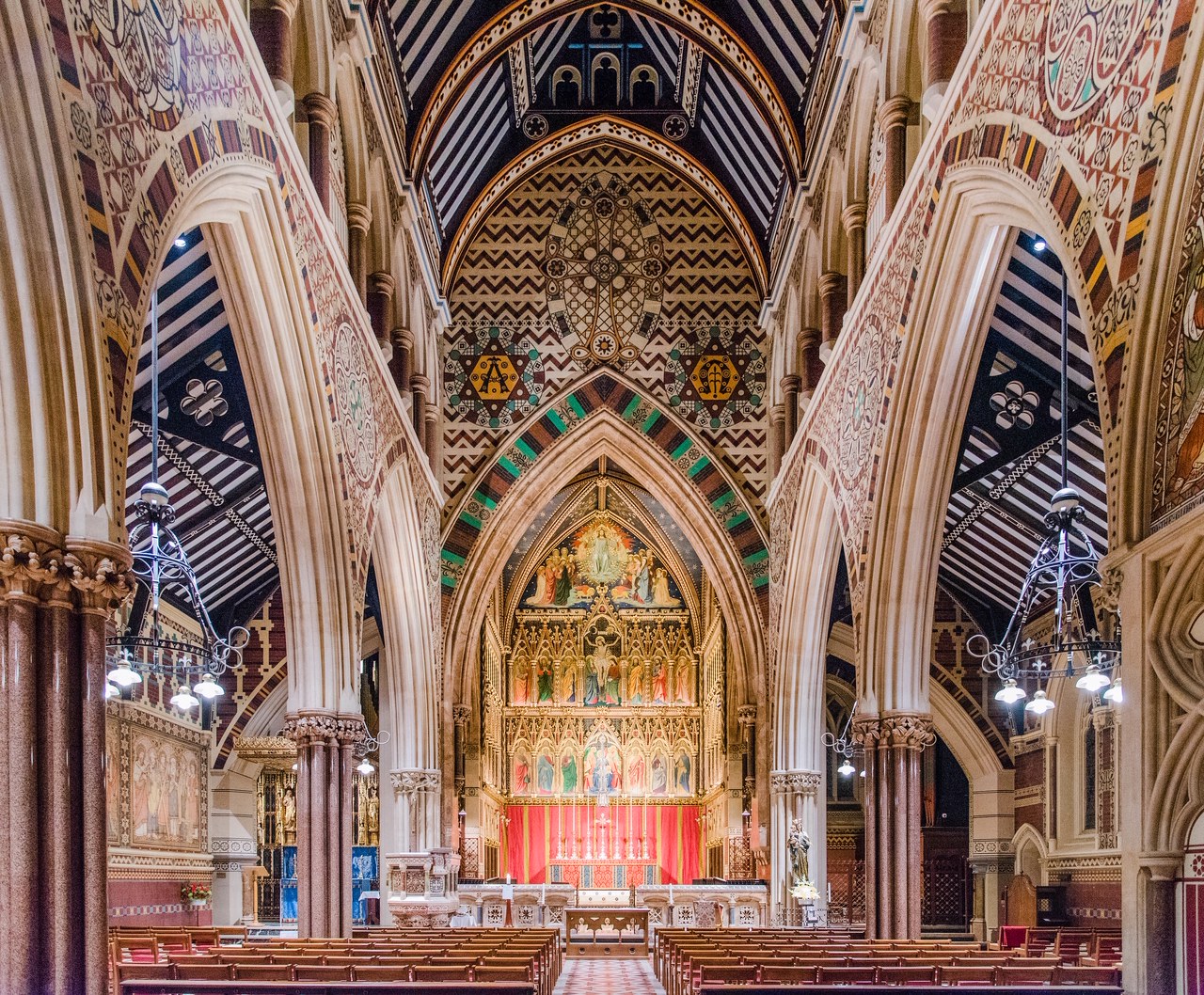By Robbie Meredith Education Correspondent on BBC News NI
For many Christians, Holy Communion is central as it reminds them of Christ’s sacrifice on the cross.
While there are some differences in how Roman Catholics and Protestants regard it, they all recognise its importance.
But with churches closed for all but private prayer, the four main denominations have different approaches to celebrating communion online.
Due to the coronavirus pandemic, many churches have been streaming services.
That is the case, for instance, at St Paul’s Church in Lurgan, although Fr Colum Wright admits it has taken a bit of getting used to.
“When you’re using a webcam there’s no one right there in front of you,” he told BBC News NI.
“It’s not something I ever thought would happen and it’s not something that I was ever prepared for.”
International viewers
But Masses over the internet have proved popular, both with parishioners and those far beyond Lurgan.
“We have actually over 84 countries who join us now through the webcam,” Fr Wright said.
“We’ve had visitors from the Republic of Korea, we’ve had a few hits from Russia, from Vietnam.
“The biggest number of people who would join us are from the United States, next would be Australia.”
But only those physically in the church can partake in the Eucharist or communion Mass.
“It’s just myself and the sacristan and the reader who would receive communion physically,” Fr Wright said.
“For everyone else we would invite them to take part in a communion of desire which is a spiritual communion.
“During the time of pandemic, when people are unable to physically attend a celebration of the Eucharist, they are reminded of the ancient Catholic tradition of a spiritual communion in one’s heart,” the Roman Catholic Church in Ireland has said.
‘Spiritual communion’
The Church of Ireland takes a similar approach with those watching the service online also enjoying “spiritual communion”.
“For a service of Holy Communion which is being broadcast online, the clergy person presiding can alone bless and partake in the sacramental bread and wine used in the location where the service is being recorded,” a Church of Ireland spokesperson said.
The secretary of the Methodist Church in Ireland, the Reverend Dr Heather Morris, said ministers could hold Holy Communion online and those watching at home could use their own food and drink to take part.
“The guidelines are that ordained ministers of the Methodist Church in Ireland may lead a service of Holy Communion provided they are in live online contact with those who are participating,” she said.
“Those who are participating in their own homes engage in a full and meaningful way spiritually, whether they choose to share their own food and drink as the minister leads or not. “
Virtual communion ‘inappropriate’
But the Presbyterian Church in Ireland has told its ministers “virtual” communion services are “inappropriate” and should not be held.
“It is important, however, to stress that this does not underestimate in any way the place of the Lord’s Table within our shared life as believers,” the Presbyterian Church in Ireland said.
According to Prof Drew Gibson from Union Theological College in Belfast, that is because for Presbyterians, being able to gather together for communion is crucial.
“In some traditions the church mediates that communion,” he said.
“It’s a Catholic, Orthodox, High Anglican tradition, where the church in offering the sacrament communicates Christ to the people.”
“Whereas in the reformed traditions, broadly coming out of the Protestant reformation, we would see the church as gathered together and Christ is there among us and we share this meal – this symbolic meal – with him.”
“When we’re all separated you just can’t have that togetherness. The actual physical presence is really quite important.
“Simply sitting in church, looking round and seeing all of these people of different ages, different backgrounds, different states of health, different nationalities and saying we’re all in this together, is quite important.”
Whatever their different approaches to communion, though, being able to have that togetherness again back in church when it is safe to do so is something all Christians will want.
BBC Ni 31 May 2020



